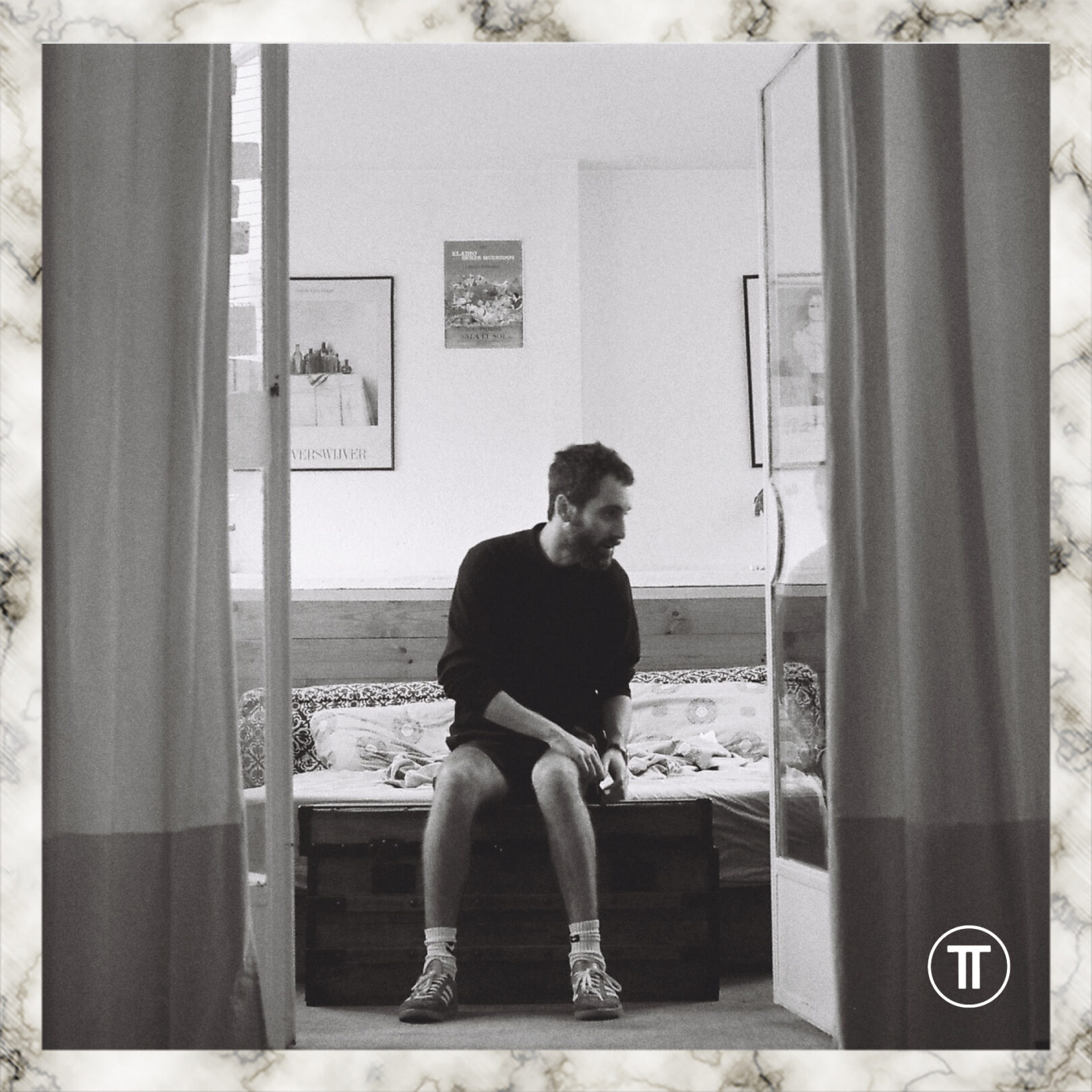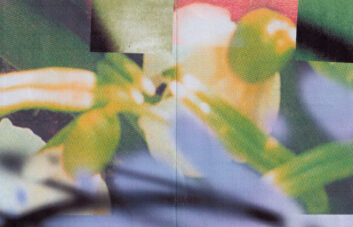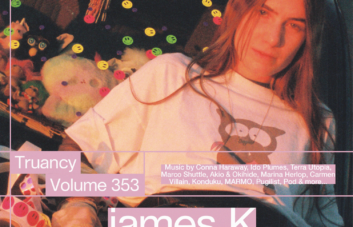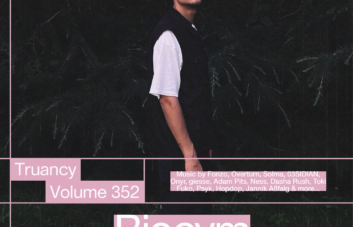Central, real name Natal Zaks, has pushed himself over the years. An incredibly talented individual with a meticulous discography that span many aliases, he’s had his hand in co-running multiple labels of over the years, with his distinct design style much sought out by record collectors and DJs. Popular outlets such as Help Recordings, No Hands and Regelbau have helped foster a small but powerful house community in the Danish city of Århus, helping spear the careers of artists such as DJ Sports, C.K, Manmade Deejay and Erika De Casier. We caught up with Natal to chat about his part in the opening of new Danish club Super, the values and beliefs of what makes the Central alias tick, producing two album-of-the-year contenders with Erika De Casier and how he feels the act of releasing music needs to be a creative process of learning, being curious and of experimentation. His Truancy Volume, recorded in the environment and influence of Super, is a vibrant, selection of records new, old and unreleased. Anyone familiar with his mixes knows how freely he moves within the house genre and here’s he’s at his most charming and intimate, rolling with compositional harmony and mixing at its most organic. It’s spontaneous and unplanned and oozing in groove and depth.
Hey Natal, thanks for taking out time to answer these questions and do this mix for us! So just to start, how have things been the last year? Have you managed to focus on music at all or has it been a very introspective sort of year for you? “My pleasure. It’s been a quiet year with a fair amount of music, graphics and such; keeping myself busy. But the introspection has been overwhelming as I expect it has for most people.”
You’ve been working on getting your new club Super off the ground I’ve heard, with it also opening up as a bar, record shop, venue and radio station. Can you tell us a little bit about the idea and evolution of setting it up as well as the team behind it? What sort of space are you working with? “In short it’s a space that has been important for the Århus music scene for decades. The recent venue called Tape closed down and we (the regelbau team) began assembling a team that could take it over. So we’ve been working hard on renovating the space and creating a foundation for strengthening the local scene; not just in a musical sense but also related to social responsibility and awareness. We’re learning a lot about creating better circumstances for our guests and staff to feel comfortable and safe in the nightlife, and in short we are privileged enough to prioritise this above financial matters.”
What sort of vibe or direction did you all decide to take as a team for this? Were there any clubs around the world you wanted to take inspiration from? “We like it small and cozy, intimate and warm. So we try to minimize elitist and alienating aspects of spaces, trying to be friendly and open to anyone with interest in our space and scene. That’s why we’re open as a shop and café too. We are hosting feedback-events for producers, a dj-school, workshops and events about extra-musical matters. As we draw inspiration from many clubs we’ve seen around the world, we look at aspects where they did a nice job and also plenty of things we should avoid. Århus is quite small, which makes our circumstances different from most clubs in bigger cities: We meet our crowd in daylight/everyday life, we don’t have much competition from other clubs, we get support from the municipality and we initially run on volunteer help. All in all, we at Super have an opportunity to raise awareness, educate and learn, while also entertaining and having fun.”
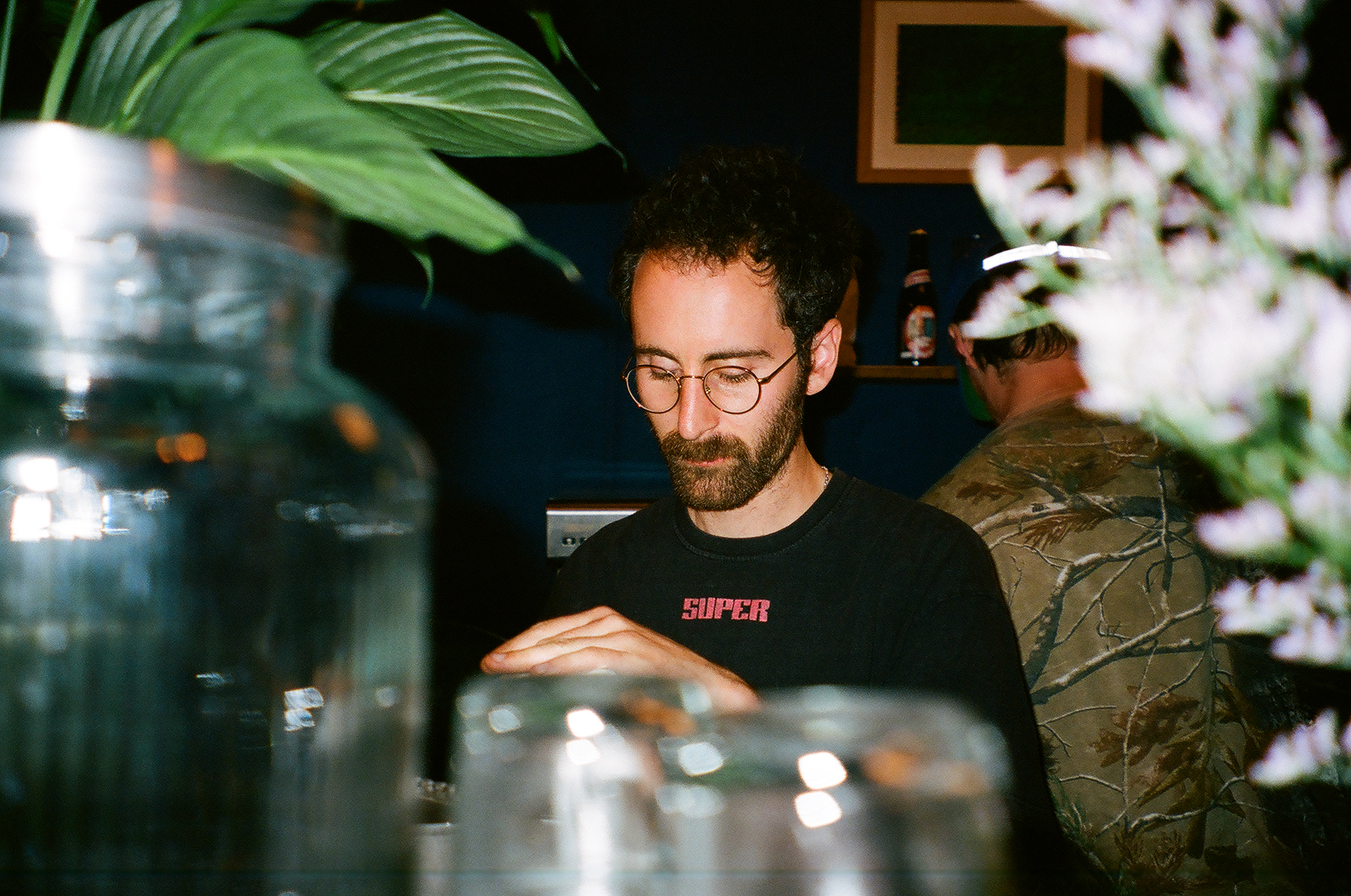
Was the opening of a new club in Denmark in response to any thoughts you might have had on Danish nightlife the last few years? You’ve mentioned in a past interview with Jaeger Oslo that it’s the friendly environment of Danish producers that make the scene here rather than cities having any particular role. “There are lots of nice individuals in our scene. So I guess that gives me confidence that we can work together to create a good space. I feel like the reception so far is very positive and that both crowd and acts are up for the task.”
What sort of dents did Covid put into the planning/timing opening of the club? Or was it an opportunity to smooth things over in the period clubs were closed and get it as right as possible? “The timing was pretty convenient for us, and even though it’s been a huge blow to individuals and society in general, I feel like it’s been a help to spend the “waiting time” on something useful. We wouldn’t have been able to do this without the so-called peace of mind. We’re still waiting for permission to dance in public, but it’s nice to be taking it easy and not feeling rushed about bookings and such. Somehow I don’t feel like I spent the last 6 months just waiting which I’m quite thankful for.”
Let’s talk about your music for a minute as what many people may not realise is you keep yourself unbelievably busy in terms of output and making music for other aliases outside of Central. I know producers have that zone they need to get in musically, but how naturally does that come to you now? “To stay in “the zone” analogy, I think I have several zones. Most of the time I’m not in them and don’t expect myself to be, but the important thing for me is not to push myself in the zones when I’m not feeling it. I do like the saying that “inspiration is for amateurs and that professionals just get to it and work.” But I like it because I’m neither of them, I guess I’m somewhere in between. When I decide to work I just work, but most of the time I’m not in the mood or have other things on my mind. The key for me is trying not to judge the work and not care too much about being inspired, I wait with that judgement till I’m out of the zone again. At least ideally – it’s not always that easy to keep things that tidy – but the awareness helps.”

You’ve talked about in past interviews about wanting to get across a sense of diversity and spontaneity in your music and that you hope your values and beliefs show through in your music. When it comes to the alias Central, and you look back on everything you’ve produced under the name, what sort of values do you hope you’ve got across? “I think the Central project is a reflection of my interest in certain aspects of club music. I don’t think groove, depth and fun are values as such, but they certainly have value! So the music should ideally just show my interest in the endless world of electronic music, and this interest is ever changing. So there’s not really any deep concept or idea behind them; they aren’t made with anything specific in mind – but I hope they still carry a series of messages. But let’s see… I hope the records communicate my interest in independence, and my fight to balance between being honest, discreet and confusing.”
The ‘Passion’ release from last year was one of my favourite house records of the year, I think easily matching Basil and Drive as one of my favourite releases of yours. How do you personally exercise quality control and make sure that you’re releasing your best stuff? “As I tried to explain earlier, I try to make music and not worry too much about releases and contexts. I respect that other strategies work for other artists, but as I (or others) assemble my releases (popup did a good job putting the tracks together for Passion) I trust the art of curation. To me, the “glue” between the tracks is slightly overrated, and I’d rather make records with music that is consistent in it’s quality rather than having my foot on the break all the time – taming my tracks so they undermine each others potential due to some imaginary future “context”. This is some basic art-theory stuff I think, but if you put things next to each other, they relate to each other no matter what – It’s all in the head of the listener. That being said, I honestly don’t know if I do release my best material. I’ve frankly lost track (no pun intended).”
Do you find yourself revisiting your past material very much? “Yeah, I’d be lying if I said I don’t. I do enjoy most of the stuff I’ve put out and it honestly reminds me of how unpredictable and loose my musical life has been. You could call me self-centered, but I think it’s a strength when it comes to being proactive and keeping an open mind towards my own creativity.”
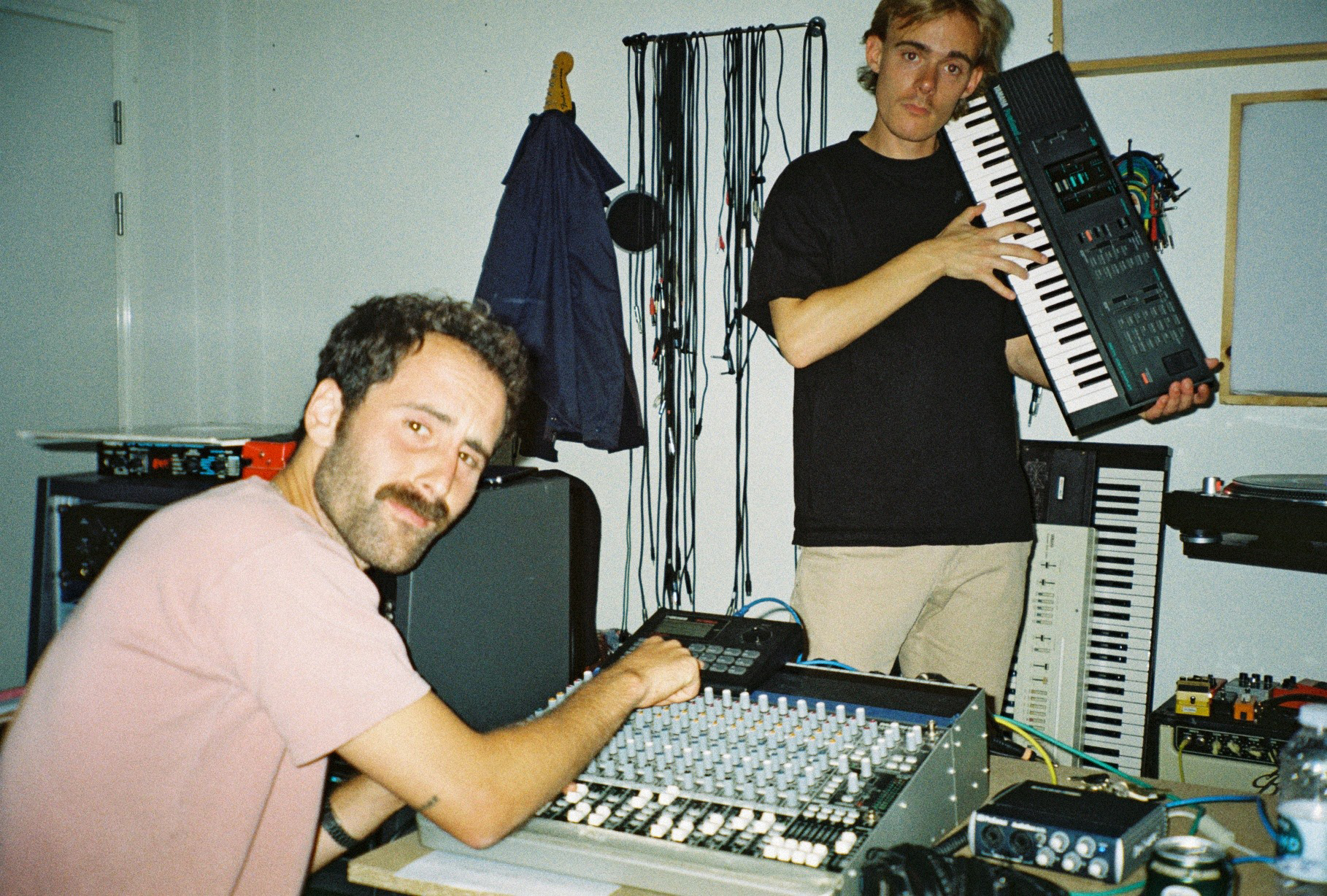
Can’t bring up the Drive release from the earlier question without bridging into asking about the Erika De Casier ‘Essentials’ album you produced under the alias El Trick. You’ve shown your ability with working with vocals in the past such as your own when working under the Alle alias, I wonder if this was familiar territory for you or if it was very much a new learning experience for you? It was all co-produced in one year right? “Both of the albums I made with Erika were produced by both of us, and Erika does have some tricks to getting her own vocals to sound good – So I could build a bit on top of that. So I did have to learn about vocal production with Alle and Erika, but I honestly didn’t find it to be very different from mixing other elements. I’d sit and listen to stuff that had a sound that I like and then aim for that sound in these projects. And yeah, all 4 albums took about a year to make each.”
Erika has mentioned in her past interviews about not having the most particularly powerful voice and that it is important the productions fit around that. Was that something you had to work quite closely and carefully on? “Well, productions are important no matter how the singer sings. Honestly I’m a bit bored with music that evidently doesn’t invest much in production just because the vocals are in focus. I think there’s loads of space to explore and fill, and I believe I have done my best to care for that in the aforementioned projects. I don’t mean this in the sense that there needs to be a shitload of stuff going on behind the vocals, but simplicity can be elegant and I think the ear knows when a production is lazy. It’s about teamwork within the elements of the songs I guess :)”
What can you tell us about working on the follow up album for 4AD? “We worked together on the entire album and spent a lot of time in the studio together, and I’m not quite sure how to describe the process. It’s been a long process with lots of ups and a few downs. In contrast to the first album, Erika brought the majority of tracks in as demo songs that we’d elaborate on, try to nurture and sometimes reassemble. I’m hesitant about talking about our collaboration as I’d usually just let Erika speak about it, but since you ask I can simply say that we worked our asses off with this music.”
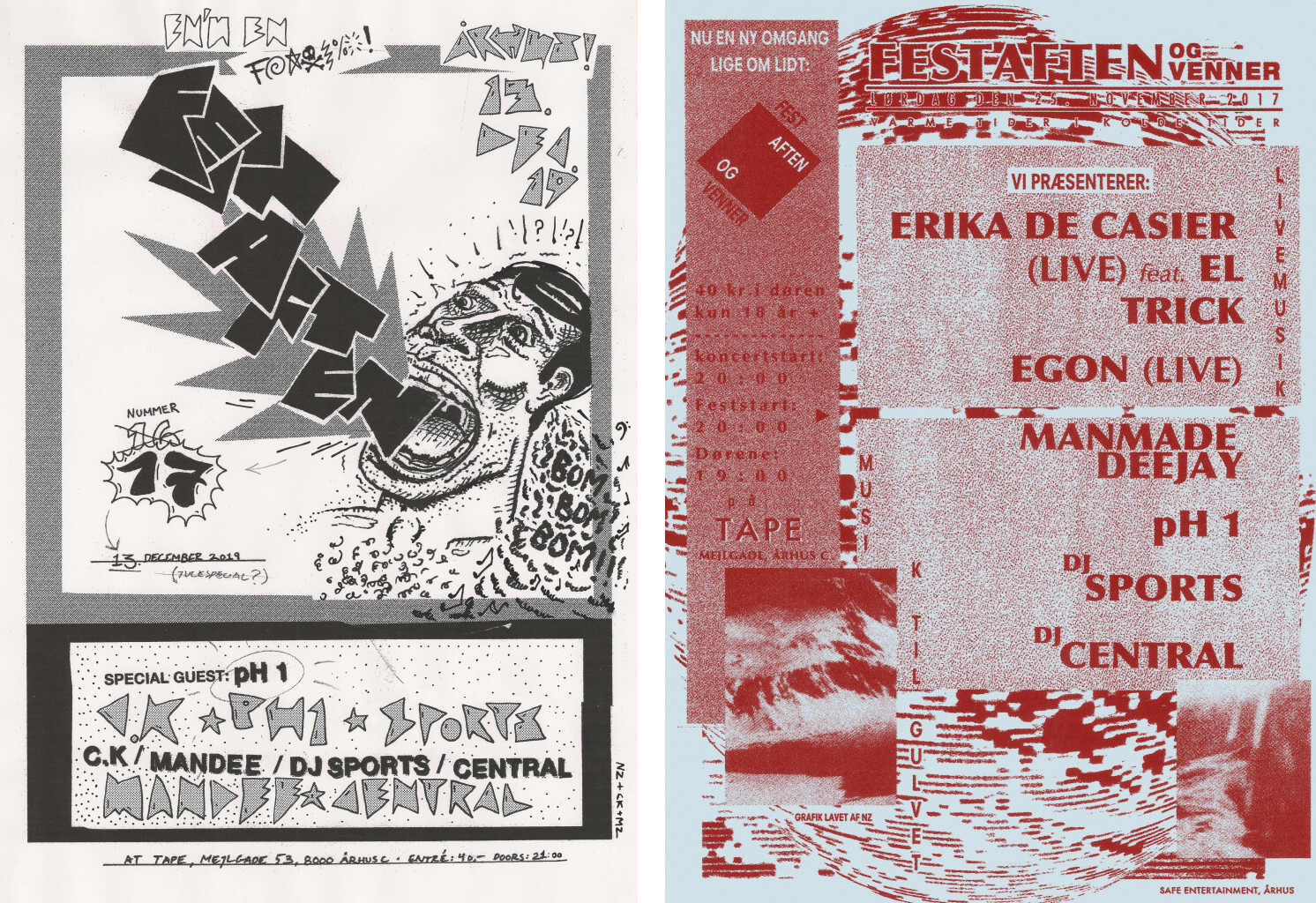
So as well as being behind a few different aliases you’ve had your hand in a number of labels over the years, be it No Hands, Regelbau, Help and Saino. Help is the one I assume you have more control over as it’s the one run solely with your (sibling) Milán, who in a past interview mentioned that you can both be overthinkers from time to time. I wonder how that has seeped in at all while running Help? “I’m not sure about that. Help is in my view a slightly simple label: We decide to release a record and initiate the process. In my opinion that process has been more challenging over the past few years, perhaps due to us being better at making music than releasing it. There might be some musical overthinking going on at times, but I try to deal with it with the strategies that I mentioned earlier. However the label is quite fluid for me and doesn’t seek to do much more than document some of the music we make. Perhaps this “simple” way of running a label is a reaction to us being quite fragile people and having a tendency to overthink things. There are so many aspects of our lives and careers that are unstable, so perhaps this is why we can’t get too complicated with Help.”
For those looking to start their own label I’m curious, what mistakes have you made along the way or that you may have spotted, that may have been particularly instructive for how you run a label now? “Let me stress that this is a highly individual process. But I can mention that I think releasing music is the best way to get better at releasing music. So the mistake could be to think that you’ll get much smarter and experienced by waiting for the perfect combination of tracks, the perfect visual identity or something like that. I’m obviously not saying “release your first completed track”, but if you recognize this tendency of waiting for “whatever”, you might be doing yourself a favour by pushing yourself over those barriers of self critique and mile high expectations. If you can do it with others it might even work better, at least that helps me. Releasing music is a bit like making music; it needs to be a creative process of learning, being curious and of experimentation, not of flawlessness, rationalization and pretentiousness.”
What can you tell us about the latest release on the label? The joint cassette album with another label venture Lightweight Electronics, produced by you under the alias Mr. IRL. I’m very keen to know the themes and inspirations behind the video. “This album is the closest I’ve come to a conceptual project I think. Mr. IRL is this cyborg persona whose story you can see in the short film by the same name. The music came first as an electro-enthusiastic friend of mine (K. Dallas) always asks me: “when are you gonna make some electro?” So I tried it out and apparently I needed some artistic/humoristic distance to be able to do it worry free. But as things developed I got a taste for the palette and made more – eventually I had an album. Then Strøm Festival approached me to invite me to do an audio-visual piece inspired by the covid19. Having just finished the album and having this Mr. IRL persona in my mind I started working on sketching out the film with some friends. My friend Anton Iversen helped me realize my ambitions as I know little about film editing and photography. So the inspirations are quite broad, obviously there’s the Stinson/Donald music/fiction, but just as much films like La Jetée and The Black Tower by John Smith.
I think I’d prefer to let the viewer have their own take on the themes of the film/project. But one thing I’d like to say is that this process was quite healthy for me as I got to dwell on some questions like: Is the nature of being an artist based on egocentrism and entitlement? How much of my work with arts and music is something I do to prove myself to the world or gain acknowledgement, and what compromises am I making to uphold the illusion of such success criteria? Can I practice letting go of those insecurities and strive towards a healthier relationship to my work? I’m not saying that my life before was about aiming for the sky but I do feel that it was helpful to deal with these questions in an artistic way – I don’t know if they come across in the film though. It’s a huge topic for me; criticizing succes criteria and discourses in music. So perhaps we can talk about that some other time.”
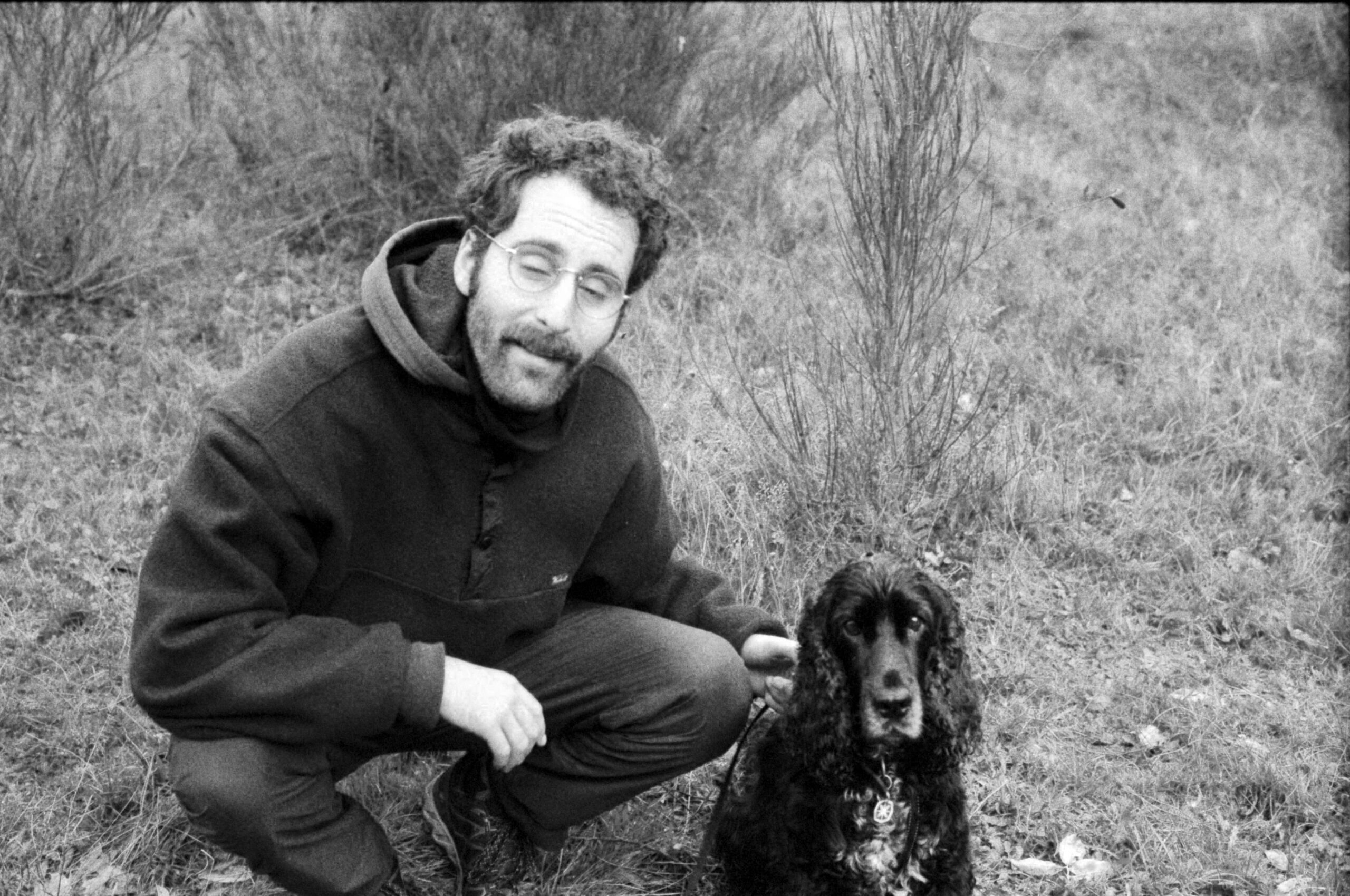
What sort of other hobbies or interests do you have outside of electronic music? Are there any books, films, art pieces or other things you’ve seen or been reading/watching over the lockdowns that have inspired you that you might want to share? “I like concentrating and practicing just this. I don’t think I’m particularly good at it but I do think it’s necessary for me to practice patience and immersion/contemplation. So I started weaving during lockdown. It’s difficult at first but I’m not that ambitious so I just have fun with it.
I don’t think I’d be able to make music if it wasn’t for my graphic work. It has always been the perfect contrast to my work with music; just sitting down and drawing – shutting down my brain. If the reader hasn’t stumbled upon the films of Adam Curtis then these are a huge recommendation. I revisit them almost yearly and find that I understand and learn new things in them. In addition I’m lucky enough to have a sibling and friends who introduce me to all kinds of thought provoking things daily. From the top of my head, these things have been important to me lately: Youtubers Abigail Thorn and Natalie Wynn’s work. Peter Singer, David Graeber, DJ Sprinkles.”
What can you tell us about the mix you’ve recorded for us? Any particular theme you went for this or any particular tracks you want to shout out? “I don’t mean this in a bad way but it’s “just” a recording of me playing some records and unreleased tracks at Super. I didn’t want to overthink it so it’s quite spontaneous and not planned out. I hope the listener will find it groovy and interesting but I don’t feel like talking it up. Tracks that I like mixed together ;)”
Last usual question for us, what was the last thing to put a big smile on your face? “Corny as I am:
A: The sun through the window this morning.
B: My partner being really shy to tell me she got herself a George Clooney coffee making machine.
C: The fact that it’s only a 15 minutes walk from my home to Super.”
Central: Soundcloud
Safe Distrubution: Website
Photo Credits: Iga Górniak (Second Picture), Thomas Asmussen (Third Picture)
You can download Truancy Volume 281: Central in 320 kbps by supporting Truants on Patreon here. Your support allows Truants to continue running as a non-profit and ad-free platform. Members will receive exclusive access to mixes, tracklistings, and merchandise. We urge you to support the future of independent music journalism – a little support would go a long way.

